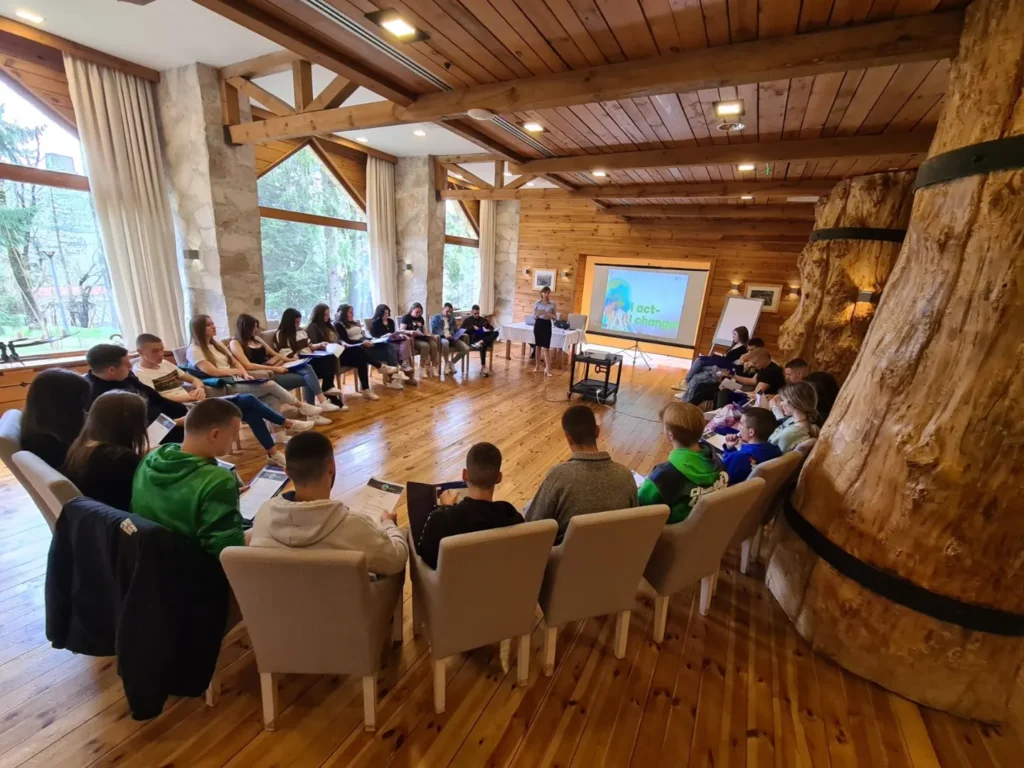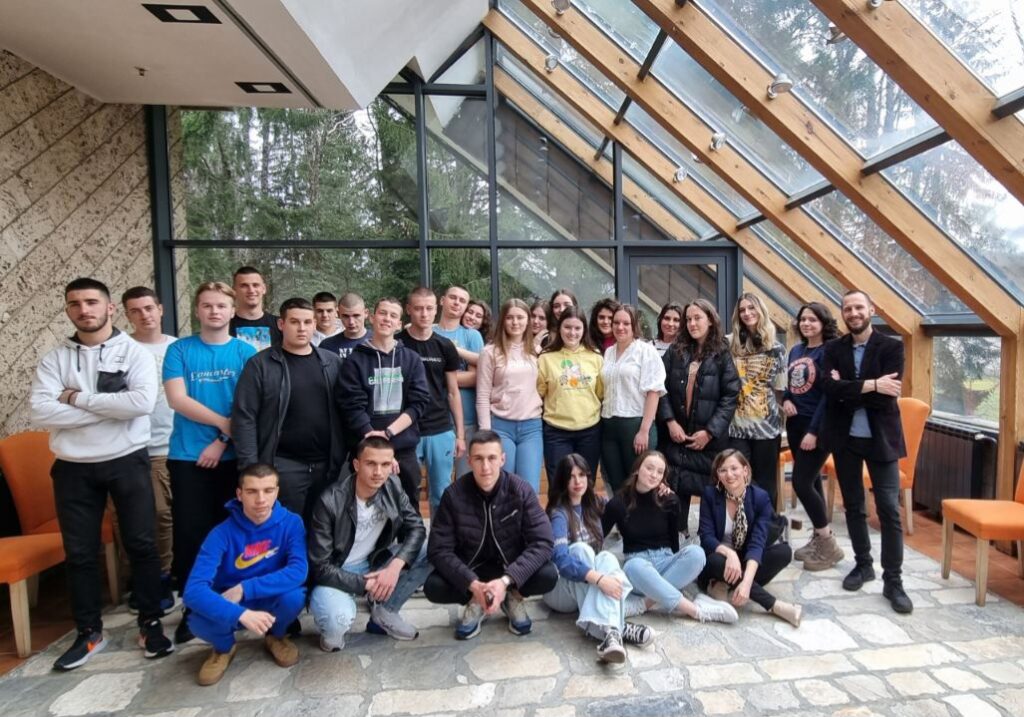Centre for Civic Education (CCE) organized an Intercultural Camp for high-school pupils in Kolašin from 26 to 30 April, within the project “I act – I change!”, which the CCE implements with the financial support of the U.S. Embassy in Podgorica.
Through the intensive five-day programme young people learned about acceptance and tolerance, the concept and consequences of radicalization, the importance of respecting diversity regardless of personal characteristics, but also how to become active advocates of the modern concept of human rights. The work was organized through interactive methods, which include short introductory lectures followed by workshops, group work, role-plays, film screenings, debates, simulations and open discussions.
“This Intercultural Camp is a unique opportunity for young people to develop their intercultural competences that will help them break free from the boundaries they have in their minds, such as prejudices, stereotypes, etc. This is of great importance for strengthening the intercultural identity of the Montenegrin society, of which young people are not only the initiators but also the bearers, and to pass on the knowledge and skills they have acquired in this camp to their peers, “stated Hakile Resulbegoviq, psychologist and workshop facilitator on this programme.
Boban Batrićević, historian and lecturer at the Intercultural Camp, shares a similar opinion. „It is important to talk to young people about history precisely because of intercultural dialogue. Determining verifiable facts, applying historical methodology and making a correct and heuristically based value judgment contributes to a more realistic perception of the past and protects against falsifications to which young people are increasingly exposed. In this manner, imposed boundaries in the mind can be erased, but also can prevent the flourishing of fabricated and parallel historical consciousness that harms interculturalism and often leads to radicalism, xenophobia and chauvinism, “ he claimed.
“Given that each culture must have tangents with another, as a small community we must have understanding, tolerance and manners to overcome prejudices. Young people in Montenegro should work on improving their understanding, on the cognition of their own values and the values of others, in order to live in harmony, peace and love “, emphasizes Janko Babović, a pupil of the second grade of the Mixed High School in Andrijevica.
“Ignorance is a major problem in our society. An intercultural society is built through education and increasing knowledge about all the cultures that live with us. In order to get to know ourselves, we have to get to know others because we can do much more together! “, said Amra Ramdedović, pupil of the second grade of the Gymnasium “Panto Mališić” from Berane.
The objective of the Intercultural Camp is the development of intercultural communication knowledge and skills of high-school pupils, as well as the networking of young people from different parts of Montenegro, through learning about constructive and effective forms of communication and encouraging young people to connect with peers from different ethnic and cultural environments, influence changes in their school and local community through the affirmation of the values and principles of tolerance and interculturalism.
Montenegro is a multicultural society, but interculturalism is to be taught – this is the general conclusion of the Intercultural Camp, which goes along with the understanding of young people that they are the ones who build and foster interculturalism. This is especially important because not everyone is equally ready to adopt one of the most important maxims of interculturalism – acceptance of diversity and minorities. The key reason for this is the lack of inclusiveness of the educational system, lack of information and unfamiliarity of young people with members of minority groups and peoples. On the other hand, the success of the Intercultural Camp is the development of the willingness of young people to be informed, to learn, to consider other opinions and to reconsider their own in the light of new facts and knowledge, which gives indications that interculturalism has a future in Montenegro and that the young people we work with can resist radicalization.
The lecturers and workshop facilitators at the Intercultural Camp were experts in the field of interculturalism, human rights, the academic sphere, representatives of non-governmental organizations, civil and youth activists. The participants of the Intercultural Camp were high school pupils of different ages from 17 Montenegrin high schools and 10 Montenegrin municipalities, namely: Bar, Podgorica, Plav, Bijelo Polje, Tivat, Andrijevica, Danilovgrad, Berane, Nikšić and Ulcinj. The intercultural camp was successfully completed by 27 high school pupils: Erna Karalić, Armin Čokrlija, Najda Hodžić, Ena Bučan, Tarik Idrizović, Fikret Krcić, Nikola Bošković, Junuz Canović, Armend Redžematović, Amra Ramdedović, Nemanja Dragović, Bojana Marinković, Janko Babović, Vasilije Đurković, Katarina Ivanović, Tarik Prekić, Jovan Backović, Andrija Jovanović, Andrijana Šćepanović, Tamara Adžić, Anja Mićanović, Tara Kovačević, Jovan Joksimović, Elena Vitić, Anđela Ivanović, Tamara Tujković, and Kalina Gredo.
Željka Ćetković, Active Citizenship Programme Coordinator


